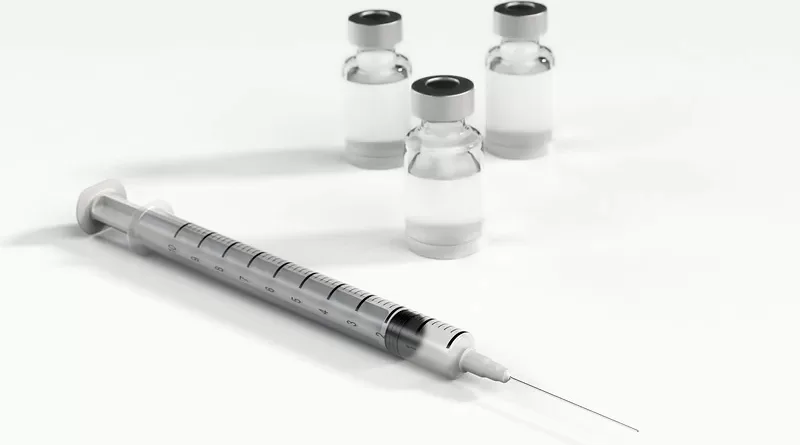Is It Time For COVID-19 Booster Shot?
By EurActiv
By Giedre Peseckyte
(EurActiv) — It has been around eight months since the first COVID vaccine was authorised in the European Union. As vaccination uptake among adults is nearing 70%, a new debate on whether a COVID-19 booster jab might be necessary is taking place across member states.
At the moment the EU has a diverse approach when it comes to additional COVID-19 shots.
For example, Germany will offer boosters to immunocompromised patients, the very elderly and nursing home residents from September. Hungary, already started giving a third dose to anyone who received full vaccination at least four months ago, while some other member states are still waiting for recommendations from the EU.
Aurelija Žvirblienė, chief research scientist and head of the department of immunology and cell biology at Vilnius University’s Institute of biotechnology in Lithuania, said there is a great difference between offering an additional jab to those with the weaker immune systems and offering it to the general society.
Revaccination for immunosuppressed and older people “is needed to create the immune response that hasn’t formed because of health issues,” Žvirblienė said.
But giving another dose to the general public should be discussed, she added.
“Countries have different approaches to this but it wouldn’t harm to better discuss this question,” she said, adding that an opinion from the scientists’ side is also needed.
“We do not use antibiotics when we don’t need them, this rule should be applied when we talk about the third dose,” she said.
Antibodies don’t tell the whole story
Žvirblienė said the best indication that there is a need for an additional dose is when people who received a full vaccination cycle start falling heavily ill and need hospitalisation.
As countries might not want to risk waiting, she said that “the most precise information” could come from vaccine producers, based on people who participated in third phase vaccine trials. These groups are being observed for two years and hospitalisation cases among them would signal that a booster is needed.
Žvirblienė admitted that waiting for vaccinated people to fall seriously ill is risky but warned that making a decision for a booster based on the level of antibodies is not fully correct as it tells only a part of the story.
The immune system consists of humoral immunity and cell-mediated immunity. Thanks to cell-mediated immunity, memory cells are formed that help to quickly activate the immune response to a virus.
“In other words, memory cells are the basic principle of vaccines,” she said, cautioning that “cell-mediated immunity is very important when fighting infections […] but it can only be measured in scientific labs”.
On the other hand, antibodies can be easily measured but it is impossible to have constantly high levels of antibodies after an infection or vaccination, as their number in human bodies naturally decreases as time passes.
“I don’t think it’s the right decision to keep high levels of antibodies,” she said.
The time for a booster will come
Žvirblienė is sure that a booster will be needed “because we know that this is the case with other vaccines as well”.
For example, the tick-borne encephalitis vaccine’s first two jabs are administered within a short period of time, then another two shots are given within three-year intervals.
COVID-19 vaccines, however, do not have vaccination schedules that could be known in advance and vaccine developers gave recommendations only for the first shots.
“Developers gave their opinion, not a recommendation, that revaccination might be needed between 6-12 months after full vaccination. This is not enough to prove the necessity of revaccination,” she said.
Žvirblienė said that after receiving mRNA or protein subunit vaccines, which have not been authorised in the EU yet, the level of antibodies rises higher than after viral vector vaccines. But after viral vector vaccines, the level of antibodies decreases slower.
Should we mix & match?
Vaccine developers do not seem in favour of mixing vaccine shots and Žvirblienė said this is understandable: “Developers would not say that another vaccine would be useful, but from the scientific point of view it should be really useful because different platform vaccines activate immune response a bit differently”.
She added that all vaccines that are authorised in the EU target the same enzyme of the virus. “Mixing and matching would not work if the vaccines would have different targets”.
Žvirblienė said those vaccinated with mRNA could get viral vector vaccines and vice versa. Once protein subunit vaccines are authorised, they could also be used as a booster.
“Protein subunit vaccine developers are already trying out their vaccines as boosters, mixing and matching them with other platform vaccines,” Žvirblienė said.

